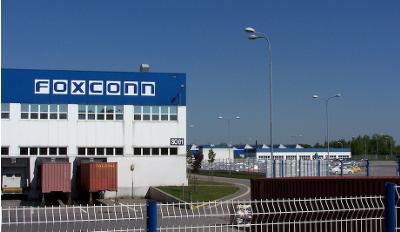
Last week, President Trump, Wisconsin Governor Scott Walker and Foxconn – an electronics manufacturing company owned by a wealthy Taiwanese tycoon – announced plans to build a factory in the United States to produce LCD screens. Trump lauded this as a victory in his stated quest to bring manufacturing jobs to the United States. But the reality may be something different.
If the name Foxconn rings a bell, you may be remembering the epidemic of suicides that horrified the world at the so-called Foxconn City industrial park in Shenzhen, China. In 2010, 18 employees attempted suicide, and 14 died as a result of those attempts. Many reports attribute this rash of suicides – which continued through 2016 – to the harsh working conditions workers endured in the factories, with forced overtime and unrealistic production quotas.
Foxconn’s track record in the United States doesn’t necessarily inspire confidence. In 2013, Foxconn publicly announced they intended to invest $30 million in a Pennsylvania factory, creating 500 jobs. Today, a gravel pile sits on the site where the factory was to be built, and Foxconn has gone silent on the issue. In fact, they’ve made similar empty promises in India, Vietnam, Brazil and Indonesia.
Foxconn employs 1.2 million workers worldwide, 500,000 of which are at the infamous Shenzhen factory complex. At its grandest vision, the Wisconsin plant would make up less than one tenth of one per cent of Foxconn’s global workforce. The 3,000 jobs they are initially promising represent such a minor number, they would ‘be considered a “rounding error” in China’, according to Christopher Balding, a professor of economics at Peking University. It doesn’t take much political acumen to guess the company’s true motivation: currying favor with a major importer of their Asian-produced goods by helping the US president score a win on his manufacturing promises.
Foxconn’s shoddy record isn’t the only red flag associated with this proposal. The electronics manufacturing giant has grown accustomed to major handouts from governments and, if their track record is any indication, they expect these freebies to keep flowing the entire time they're in the country. In order for this plan to become a reality, the Wisconsin state legislature would need to approve $3 billion in corporate incentives to defray capital costs and workforce development costs. The math is startling: Wisconsin will pay out $230,000 in tax dollars for each one of the 13,000 jobs. This means Wisconsin taxpayers will shell out $66,000 per year to subsidize jobs that will pay less than the state average income. In a state experiencing its lowest unemployment rate in 17 years, it’s difficult to imagine there would be political will to pass this legislation.
This announcement was set against the backdrop of the Senate vote on whether to repeal and replace the Affordable Care Act, popularly known as Obamacare. The repeal of this plan would not only have stranded 32 million people without health insurance, it would have drastically cut funding to Medicaid, hospitals, retirement homes, and other health facilities. These cuts would translate into job losses – a predicted one out of every 20 healthcare jobs could disappear by the year 2026. Alas, for Trump, these jobs don’t seem to count; only jobs that feed into his apparent fixation on showing he can broker ‘deals’ that will deliver on his promise to reinvigorate the manufacturing sector.
It’s also worth asking what kind of jobs the Foxconn deal will create. Wisconsin Governor Scott Walker’s entire political career has been framed by his battle against organised labor. With funding from the Koch Brothers and other deep-pocketed out-of-state donors, he’s waged an unceasing battle against public sector unions, including teachers and other civil servants. He also helped make Wisconsin a ‘right to work’ state, which will make it much more difficult for Foxconn’s employees to join a union if they decide to. Under Walker’s watch, union membership has plummeted faster than in any other state in the country.
Let’s be clear: the media splash created by the (potential) Foxconn investment is understandable, given the very real need to find way to support well-paying, family sustaining jobs in the US manufacturing sector. But given the track record of company and politicians involved, the Wisconsin legislature should take a long, hard look at whether the deal on the table makes economic sense for taxpayers and workers. Trump, Walker, and Foxconn may have to turn over a new leaf if they want to prove that they are genuinely interested in creating good, family-sustaining jobs, as opposed to simply garnering attention to further their electoral agenda.